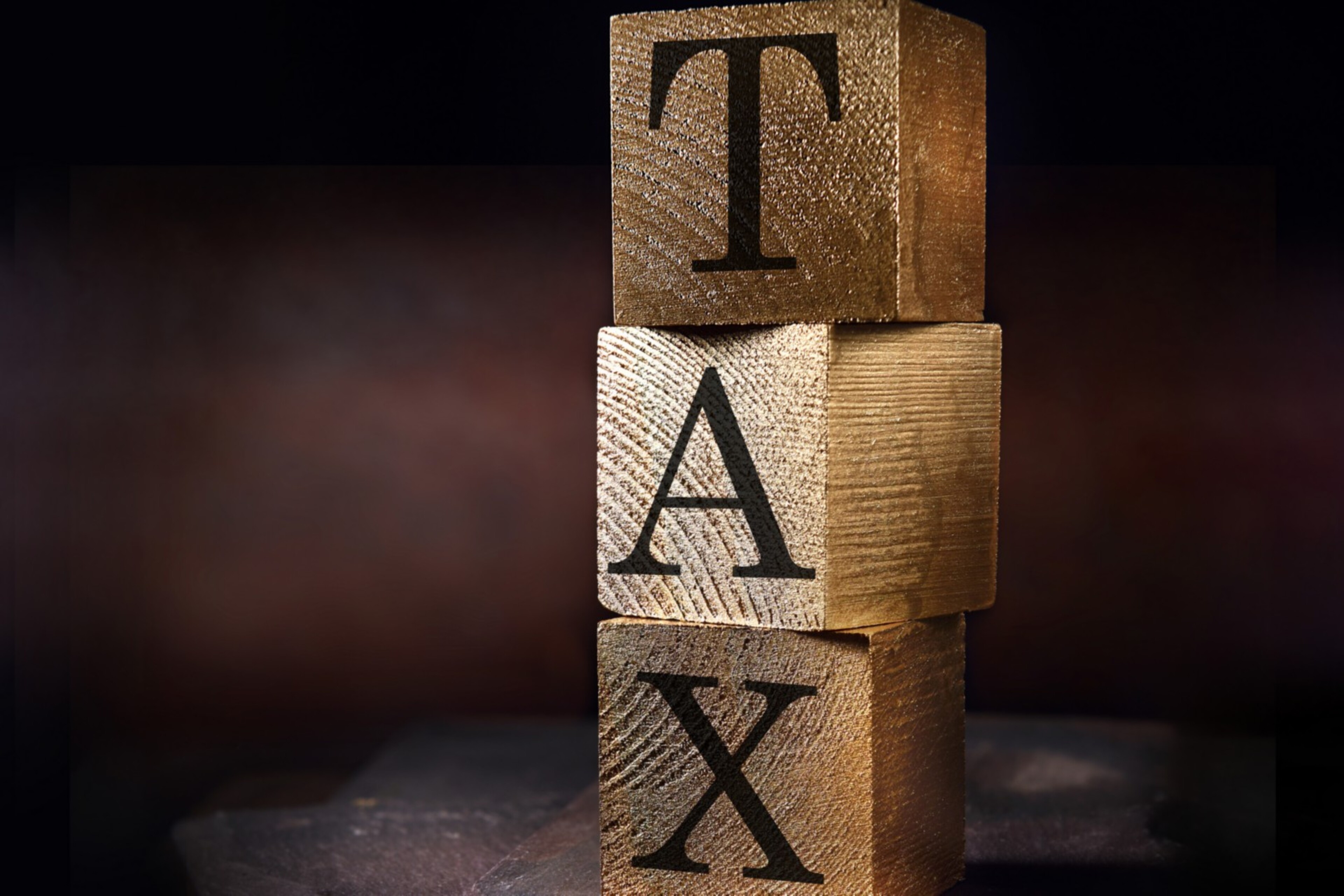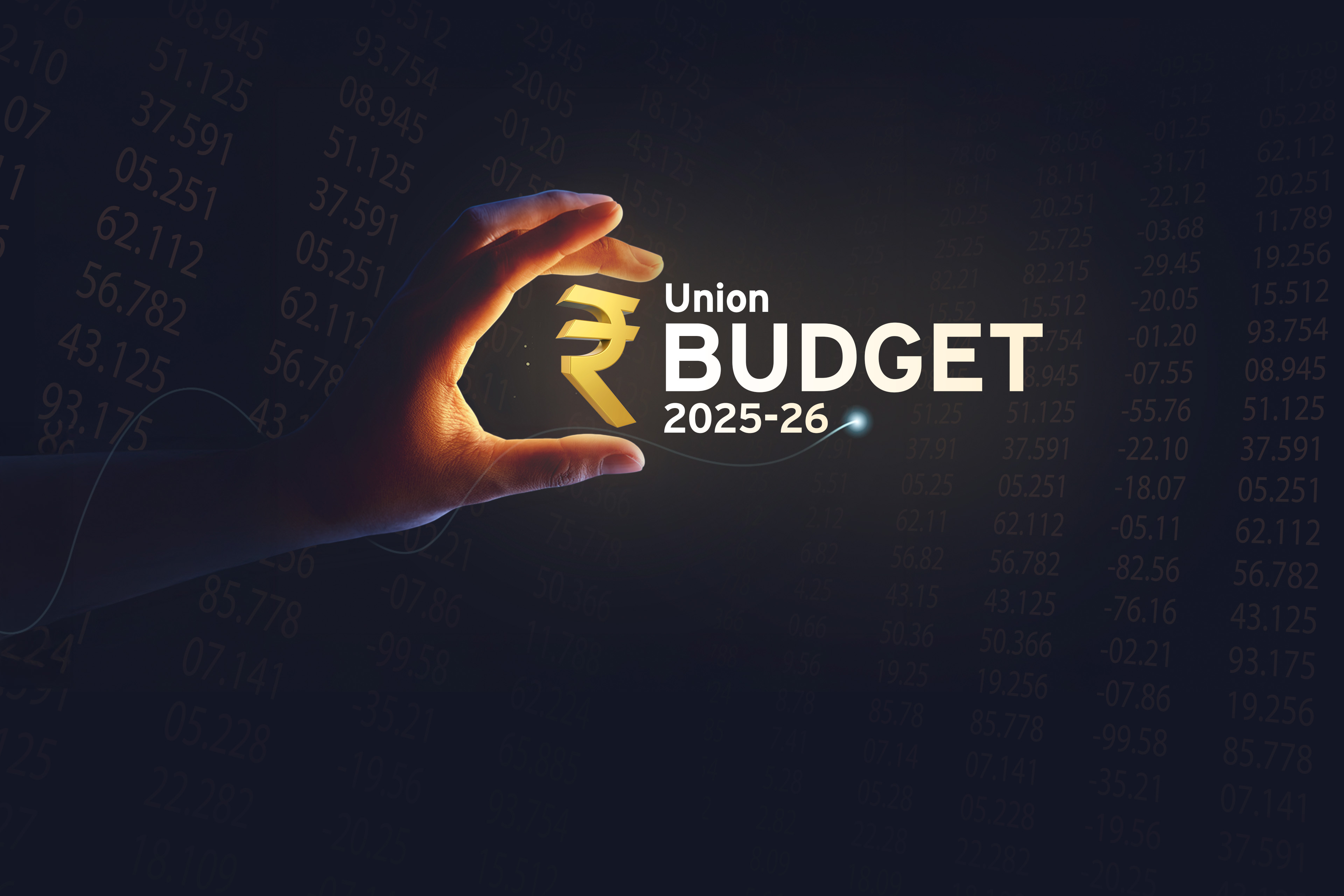EY refers to the global organization, and may refer to one or more, of the member firms of Ernst & Young Global Limited, each of which is a separate legal entity. Ernst & Young Global Limited, a UK company limited by guarantee, does not provide services to clients.
Union Budget 2023
Our team of senior tax and policy professionals decodes and analyzes various aspects of Budget 2023.
EY Leaders on Budget 2023
- Budget 2023
- Agriculture
- Agriculture, Social sector and Skills
- Automotive
- Consumer product and retail
- Ease of doing business
- Electric Vehicles
- Financial Services
- Government and Public Sector
- Green Hydrogen
- GST Changes
- Infrastructure
- Lifesciences
- Make in India
- Start-ups
Budget 2023 continues its growth focus led by capex push, which should result in a positive multiplier impact for the economy. The thrust on areas like transport connectivity projects and green projects will create new opportunities for the private sector and uplift demand. The businesses welcome the emphasis on trust-based governance and providing an enabling environment through ease of doing business, especially for the MSMEs. The rejig in tax slabs under personal tax should provide much-needed relief to taxpayers and may encourage higher consumption or savings. It is a befitting Budget to usher India into Amrit Kaal.

Sameer Gupta
National Tax Leader, EY India
Amrit Kaal focuses on being a technology-driven and knowledge-based economy and as one of the primary visions of growth and job creation. The government has taken a big leap to embrace 5G much more swiftly by setting up 100 labs in engineering institutes for developing apps for 5G services, this will further boost the employment and business opportunities in the country. India has made remarkable advancements in the digital realm and various new initiatives have been adopted to improve the lives of people, accelerating the societal benefits of artificial intelligence under the vision of “Make AI in India.” Three specialized centers will be set up, which will conduct interdisciplinary research and will help in building a talent pool of skilled AI professionals enabling automation via technology in agriculture, health and sustainable cities.
The launch of National Data Governance Policy (NDGP) is a much-awaited and a welcome step to enable to country in availing the full potential of data. This will result in transparent and trust-based data governance, that will lead to a boost in data-based innovation and enhance the delivery of government services to the country’ citizens, especially in key sectors such as health, education, and law and justice.

Bipin Sapra
EY India Tax Partner
For Agriculture With a continued focus on uplifting the farmer community, and a strong thrust on the Agriculture sector and rural development, Budget 2023 has announced a slew of policies and outlays aimed at skilling, technology infusion, and infrastructure.

Aashish Kasad
EY India National Leader - Chemicals and Agriculture sector; India Region Diversity & Inclusiveness Business Sponsor
The budget is forward-looking and is striking a balance between farmers welfare, increasing agriculture competitiveness, supporting agriculture start-ups and being climate-friendly. Initiatives such as Digital Public Infrastructure, CoE on Artificial Intelligence, and agriculture accelerator fund will help realign information and market information asymmetry as well as allow entrepreneurship growth in the agriculture value chain. Bolstering investment in fisheries, and cooperatives and increasing credit availability will boost growth in these sectors with high potential. Initiatives on Millets, natural farming and horticulture clean plant will be critical for an India which is looking for healthier food, climate resilience and greater productivity. EY is proud to be assisting the government in many of these initiatives.

Amit Vatsyayan
EY India Leader – Agriculture, Social sector and Skills
The focus of the Union Budget 2023 is to promote manufacture of EV in India and accordingly Customs duty on import of capital goods for manufacture of lithium ion cell for EV battery and import of specified components/ sub systems by testing agency is reduced. Further to push the Make in India agenda customs duty on SKD and CBU vehicles have been increased.

Saurabh Agarwal
EY India Tax Partner
The budget, after an interval, has provided a boost to the middle class and rural incomes. As the fastest growing economy in the world, and the consumption power of the middle class, this budget has propelled the vision of making India a manufacturing hub as well as a consumption economy. The revised tax slabs are a welcome step towards improving savings and disposable income for households who have come out of a K shaped recovery post pandemic.
The make in India push, and reduction of import duties in crude and other raw materials would help in promoting consumption and creating employment. The budget also continues on the vision of data and digitization, with initiatives in agri startups, data governance policy, digi-lockers enabling the modernization agenda for business. In summary a progressive and positive budget, likely to drive positive consumer sentiment.
The measures taken for ease of doing business, like usage of PAN as a common identifier for select government digital systems, mandate to Financial Regulators to look into reduction of compliance burdens, etc would be highly appreciated by the industry at large. Further, introduction of new provisions in GST Act which allow sharing of GST common portal data with other government agencies also shed light on government’s continued focus on strict compliance monitoring and inter-departmental data sharing.

Saurabh Agarwal
EY India Tax Partner
Electrifying mobility is one of the most important aspects of mitigating climate change and promoting green growth, a key focus area of the current budget. We have close to 2 million EVs on the road and more than 50% of the vehicles are expected to be electrified by 2030 (varying across segments). One of the biggest components of EVs is the battery and the budget provides for custom duty exemption on capital goods import required for manufacturing Lithium Ion battery cells. This is one of the most capital intensive areas in the entire value chain and should go a long way in improving the viability of batteries and electric mobility sector.
The budget seems to capitalise on the strength of the financial sector. Opening up markets in IFSCA with an SEZ status and delegating single window clearances would enable acquisition funding by foreign banks and allow recognition of offshore derivative contracts. On the tax side, carry forward losses have been allowed for banking mergers as well as strategic sales by government and PSUs. This would enable better pricing for divestments, whereas personal tax concessions would boost spending and expand retail credit.
Investing outlay of capital expenditure to 10 lakh crores would boost credit offtake in both public and private sector, positioning private sector infrastructure investment to grow further. Strong bank balance sheets would enable funding capex and consequent asset creation would help in our path to a $7 trillion economy.
It is heartening to see the much needed spotlight on reading and knowledge acquisition get the much needed spotlight in Budget 2023 and the subsequent manifestation of National Digital Library for children and adolescents. In keeping with the current times, a balanced approach using both physical and digital ecosystems has been adopted like physical libraries at panchayats, extending reach of National Digital Library and leverage existing ecosystem like the National Book Trust is being talked about.

Vikas Aggarwal
EY India Partner - Government and Public Sector
The Union Budget 2023 considers Green Growth as one of the Saptarishi’ guiding through the PM’s vision of the Amrit Kaal, which is likely to place India in a strategically competitive position globally. Most importantly, the commitment to achieve annual green hydrogen production of 5 MMT by 2030 provides a strengthened head start to stakeholders and gives a strong vision to focus on. Further, the special focus for providing Viability Gap Funding (VGF) to Battery Energy Storage Systems with capacity of 4,000 MWH is an essential catalyst for this as it is also likely to provide prime support to Battery Swapping Policy envisioned by the Government.

Saurabh Agarwal
EY India Tax Partner
The Finance Bill proposes to deny GST credit on CSR activities. This will likely help in settling the disputes between the industry and the tax payers. While the same may not have direct impact on the industry as the non-creditable GST would be available for claim as part of CSR expenditure to eligible industry players. Further, introduction of new provisions in GST Act which allow sharing of GST common portal data with other government agencies also shed light on government’s continued focus on strict compliance monitoring and inter-departmental data sharing.

Saurabh Agarwal
EY India Tax Partner
Budget 2023 lays down the blueprint for prosperous and inclusive India @ 100 which recognizes Infrastructure sector as a key contributor to achieve the vision of sustainable growth in Amrit Kaal. Enhanced capex outlay of INR10 lakh crores (representing 3.3% of GDP) including highest outlay for railways, further development of regional airports and transport infrastructure projects will boost last and first mile connectivity. Proposal to provide viability gap funding for battery storage, renewable energy evacuation, green credit programme are strong initiatives to support Green Growth. Further the PPP model continues to be an area of focus to promote coastal shipping as an energy efficient and economical mode of transport. The proposed Urban Infrastructure Development Fund will facilitate development of urban infrastructure thereby providing a better lifestyle to the population in Tier 2 and Tier 3 cities.
In summary, the budget proposals give continuity of growth and seek to propel domestic consumption, employment with focus on training and skilling the youth for digital India.
While Budget 2023 has stayed away from providing any tax incentives including capex linked deduction to the power sector, policy announcements such as green hydrogen mission, green credit programme, evacuation of renewable energy and battery storage systems with viability gap funding will support the green industrial and economic transition.

Sameer Gupta
National Tax Leader, EY India
There were some key highlights in this year’s Budget for the Pharma and Healthcare Industry.
On the positive front, the government health expenditure has shown an increase from 1.40% of GDP in FY 19 to 2.1% of GDP in FY 23 viz a budget plan of Rs 88,956 crore for FY 23-24. To boost R&D and innovation the Government announced a new pharma program to be undertaken through centres of excellence. Further facilities in select ICMR labs will be made available for research by public and private medical faculties and private R&D teams for collaborative research. These are steps in the right direction.
Other initiatives announced in the budget which could help the Healthcare industry include a plan to have three Centres for excellence of Artificial Intelligence for health, agriculture, and sustainable system to foster partnership of industry players in conducting research and develop cutting edge applications. Also 157 nursing colleges are to be set up in the existing medical colleges to boost the much-needed manpower for the healthcare sector.
Further, current customs exemption for specified products are extended for lifesaving drugs and specified drugs, medicines, diagnostic kits by two years up to 31 March 2025 and for Specified drugs and medicines supplied free of cost to patients under Patient Assistance Program, specified medical and surgical instruments, hospital equipments up to 31 March 2024.
Having said that, the much-hoped income tax benefit in the form of higher R&D linked weighted deductions or simplification of the patent box regime were not considered. Also missed was extending customs exemption for goods used in pharma sector for R&D beyond 31 March 2023.”

Hitesh Sharma
EY India Tax Partner and National Leader – Lifesciences
Customs duty changes/exemptions on parts of mobile phones and other products, capital goods for manufacture of Lithium ion cells for use in Battery EVs etc. as well as in key sectors like Auto, Toys, etc are reflective of government’s continued impetus on promotion of domestic manufacturing industry and continuance of sector wise monitoring of Phased Manufacturing Programme(s). data sharing. However, the expectations of the industry on introduction of PLI schemes for new sectors or increased allocation of funds for existing PLI schemes didn’t find any place in the budget which may be disappointing for industry.

Saurabh Agarwal
EY India Tax Partner
Budget 2023 has provided further support to the Indian #startup economy by way of allowing new set-up till 31 March 2024 for availing tax benefits, and through increase in period for safeguarding carried forward losses till 10 years. Also, proposed setting up of Centres of Excellence for Artificial Intelligence, Data Governance policy including access to anonymous data, Agri Start-ups, expanded use of Digi locker, etc is likely to provide more avenues for start-ups in different sectors.
Video bytes: EY Leaders on Budget 2023
- Agriculture
- Automotive
- Climate change and sustainability services
- Consumer product and retail
- Education
- Financial Services
- Financial Services
- Indirect Tax
- Infrastructure
- International Tax
- Life Sciences
- Personal Tax
- Power & Utilities
- Public Health
- Personal Tax
- Real Estate
- Start-ups
Join our conversations on Budget 2023
How India’s FY25 interim budget could prepare ground for the main budget
Discover the groundwork laid by India's FY25 interim budget, shaping expectations for the main budget. Key insights on economic strategies and policies.
Fiscal consolidation in India: charting a credible glide path
How a reduced fiscal deficit will help India make more investable resources available for the private sector? Learn more about fiscal consolidation in India.
How Budget 2023 has increased the attractiveness for IFSC, GIFT IFSC
Discover how GIFT (IFSC is expected to play a pivotal role in India’s growth journey. Learn more about Tax Incentives for IFSC Unit - GIFT IFSC
How Budget 2023 changes are likely to impact the e-commerce operators in India
EY highlights how Budget 2023 proposals aim to deal with the taxation in e-commerce. Learn more about the changes impacting e-commerce operators.
Union Budget 2023: strict clauses continue to challenge charitable institutions
EY highlights the amendment in charitable trust. Learn more about the Charitable trust amendment in budget 2023.
Budget 2023 widens the scope of Tax Deducted at Source (TDS)
EY highlights how Budget 2023 widens the scope of Tax Deducted at Source (TDS). Learn more about TDS rates.
EY highlights how Budget 2023 attempts to make the new concessional tax regime more attractive. Learn more about the new and old tax regimes.
How amendments in angel tax will impact companies
In Budget 2023, the scope of angel tax expanded, to cover foreign funding. Learn more about the amendments in angel tax.
Sunset clauses in India are truly setting
Sunset clauses are commonly used in India's tax and fiscal laws, such as tax holidays and exchange control regulations. Learn more about their implications.
Stay informed on Budget with EY India podcasts
Listen to India Union Budget 2026 pre-budget & budget insights, key tax reforms, sector priorities, policy impacts, and strategic insights for business and growth.
















